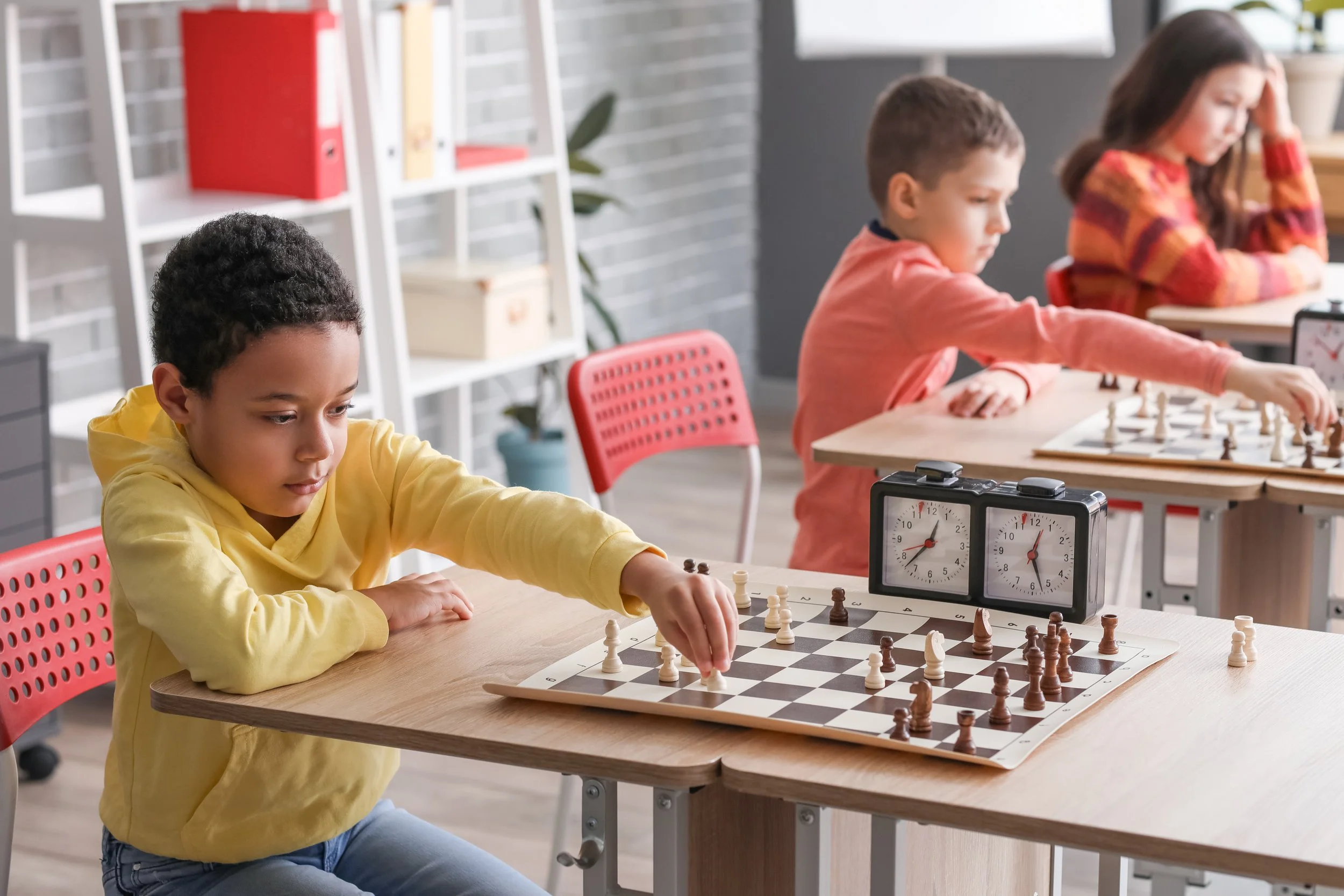Is My Kid Ready for a Tournament?
One of the most common questions parents ask is: how do I know if my child is ready for their first chess tournament? The real answer isn’t about ratings or winning. It’s about whether they’re ready to step into an environment that builds resilience, focus, and a growth mindset. Tournaments challenge kids, but in the best way: they offer opportunities to learn from mistakes, celebrate small victories, and develop confidence that carries far beyond the chessboard.
Here are some clear signs your child may be ready, along with ways you can support them.
1. They Know the Basics and How to Win
Before entering a tournament, kids should feel confident about the essentials:
How each piece moves
Castling
The difference between check and checkmate (and having delivered a checkmate on purpose)
Touch-move rule (once a piece is touched, it must be played if it has a legal move)
A great way to build this foundation is with Lichess’s interactive lessons. The site is free, kid-friendly, and lets children practice everything from piece movement to basic tactics.
At home or in a club setting, celebrate successful checkmates and help them understand that mistakes are simply opportunities to learn.
2. They Can Stay Engaged Through a Game
Tournament play requires players to focus from start to finish. The games may be longer than casual play at home, but what matters is that your child can remain engaged until the result without giving up halfway through.
Parents can help by teaching children small focus strategies, like taking a breath before each move or reviewing the board carefully. These habits build confidence and reduce frustration.
Scholastic tournaments create an environment where kids learn, compete, and have fun.
3. They Understand Competition From Other Activities
Chess tournaments are not so different from youth sports. If your child has participated in an individual or team sport such as soccer, swimming, or martial arts, they already know what it feels like to compete, follow rules, and show sportsmanship. That experience makes the transition to chess tournaments much smoother.
You can reinforce this by connecting lessons from other activities such as teamwork, practice, and persistence to chess. This helps your child see competition as a learning opportunity rather than a source of stress.
4. They Can Handle Wins and Losses
Tournament chess is about growth, not perfection. Kids don’t need to win every game, but they should be able to enjoy a victory and also accept a loss without letting it ruin their day. A positive attitude is key to having fun.
Parents can model this mindset by praising effort, strategy, and good sportsmanship rather than only outcomes. Celebrating small victories such as a clever move or improved focus reinforces that learning comes first.
Final Thoughts
Tournament chess is about more than learning moves or winning games. It is an opportunity for kids to develop a growth mindset. Competing teaches them to embrace challenges, learn from mistakes, and celebrate progress over perfection.
Parents play a crucial role in this journey. By providing support, encouragement, and a calm environment, you help your child gain resilience, focus, and confidence, skills that extend far beyond the chessboard. Every tournament, win or lose, is a chance for growth and a step toward a lifelong love of chess.

